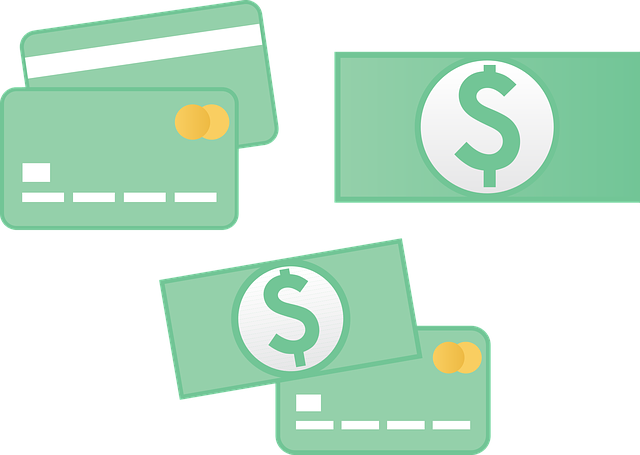Understanding your financial standing is crucial for long-term debt freedom. Evaluate all debts, consolidate high-interest or short-term loans with personal debt consolidation loans to simplify payments and save money. Compare loan offers and create a solid repayment plan by evaluating your budget and prioritizing debt reduction. Prevent future debt accumulation through strict budget adherence and maintain good financial health.
Embarking on the journey to financial freedom? Our ultimate debt consolidation checklist guides beginners through every step. First, evaluate your current debt and financial situation for a clear picture. Next, discover the benefits of personal debt consolidation loans in simplifying payments and saving money. Explore various loan types, compare offers meticulously, and craft a repayment plan tailored to your needs. Lastly, implement strategies to prevent future debt accumulation, ensuring long-term financial stability with your newly consolidated debts.
- Evaluate Your Current Debt and Financial Situation
- Understand the Benefits of Debt Consolidation Loans
- Explore Different Types of Personal Debt Consolidation Loans
- Compare Loan Offers: Interest Rates and Terms
- Build a Solid Plan for Repaying Consolidated Debts
- Implement Strategies to Prevent Future Debt Accumulation
Evaluate Your Current Debt and Financial Situation

Understanding your current financial standing is a crucial first step in embarking on your journey to long-term debt freedom. Begin by evaluating all your debts, both personal and business if applicable. List down each loan or credit card with its respective balance and interest rates. This comprehensive view will help you identify areas where consolidation can be most effective. By consolidating, you’re aiming to simplify your payments into one manageable affordable repayment plan.
Assess not just the amounts but also the terms. Consider loans with higher interest rates or shorter repayment periods as priorities for consolidation. Remember, personal debt consolidation loans offer a chance to restructure your debts, making them more manageable and potentially saving you money in the long run.
Understand the Benefits of Debt Consolidation Loans

Debt consolidation loans offer a strategic approach to managing personal debt by combining multiple high-interest debts into one single loan with a potentially lower interest rate. This financial strategy provides several key advantages, including simplifying repayment processes and reducing overall debt burden. By consolidating debt, individuals can say goodbye to the stress of juggling multiple payment deadlines, lowering their monthly expenses, and gaining better control over their finances.
It’s important to understand that while personal debt consolidation loans can lead to long-term debt freedom by streamlining payments, they aren’t a quick fix. Unlike debt settlement options, consolidation doesn’t always reduce the overall debt amount. However, it makes repayment more manageable through structured payments tailored to your budget, paving the way for financial stability and peace of mind. Consider exploring consolidate debt solutions as a responsible step towards achieving financial goals and securing a brighter future.
Explore Different Types of Personal Debt Consolidation Loans

When considering personal debt consolidation loans, it’s crucial to understand the options available. These loans are designed to simplify your repayment process by combining multiple high-interest debts into one manageable loan with a lower interest rate. There are several types of personal debt consolidation loans, each catering to different needs and financial situations. Some of these include unsecured loans, which don’t require collateral but often have higher interest rates, and secured loans, where you use an asset like your home or car as security for the loan, potentially offering lower rates.
Additionally, debt management programs (DMPs) are another avenue to explore. While not technically a loan, DMPs help you manage debt by working with a credit counseling agency that negotiates lower interest rates and repayment terms with your creditors. This approach can reduce monthly payments and save you money on interest, similar to debt consolidation loans. Even mortgage debt relief programs exist for homeowners facing challenges with their primary debt, offering potential savings and more flexible repayment options.
Compare Loan Offers: Interest Rates and Terms

When exploring personal debt consolidation loans, comparing loan offers is a crucial step to ensure you get the best deal for your financial situation. Pay close attention to interest rates – lower rates mean significant savings over time. Additionally, assess the loan terms, such as repayment periods and any prepayment penalties, as these can vary widely between lenders. Opting for a fixed rate loan for bad credit could provide stability and predictability in your monthly payments.
Consider also the potential benefits of mortgage debt relief or military debt relief programs if applicable. These options may offer lower interest rates or specialized repayment plans tailored to service members and their families, helping alleviate financial strain. Remember, thorough comparison will empower you to make an informed decision that aligns with your budget and long-term financial goals.
Build a Solid Plan for Repaying Consolidated Debts

Building a solid plan is the cornerstone of successfully repaying debts consolidated through personal loans. The first step involves evaluating your current financial situation. Create a detailed budget that accounts for all income sources and existing expenses, ensuring you understand where your money goes each month. This awareness will help you identify areas to cut back, freeing up more funds for debt repayment.
Prioritize high-interest debts within your consolidation plan. Focus on paying off these loans first as they can significantly impact your overall interest costs. Consider using the debt snowball or avalanche method – the former encourages early repayment of smaller debts, while the latter targets the highest-interest debts first. Regularly reviewing and adjusting your strategy will ensure you stay on track towards long-term debt freedom.
Implement Strategies to Prevent Future Debt Accumulation

After consolidating your existing debts through personal debt consolidation loans, it’s crucial to implement strategies that will prevent future debt accumulation. This involves simplifying money management by creating and adhering to a realistic budget. Track your expenses diligently, ensuring every dollar is accounted for. Regularly review and adjust your budget as needed to accommodate changes in income or lifestyle.
Consider the differences between debt settlement vs. consolidation when planning your financial future. Debt settlement involves negotiating with creditors to reduce the amount you owe, while consolidation focuses on combining debts into a single loan with potentially lower interest rates. Given that bad credit loan consolidation can be challenging for those with low credit scores, prioritizing responsible spending habits and timely bill payments is essential to maintaining good financial health and avoiding the need for further debt relief measures.
Debt consolidation can be a powerful tool for managing finances, but it requires careful planning. By evaluating your current debts, understanding loan options like personal debt consolidation loans, comparing terms, and creating a repayment strategy, you can take control of your financial future. Preventing future debt accumulation through responsible spending habits will ensure long-term financial well-being.
